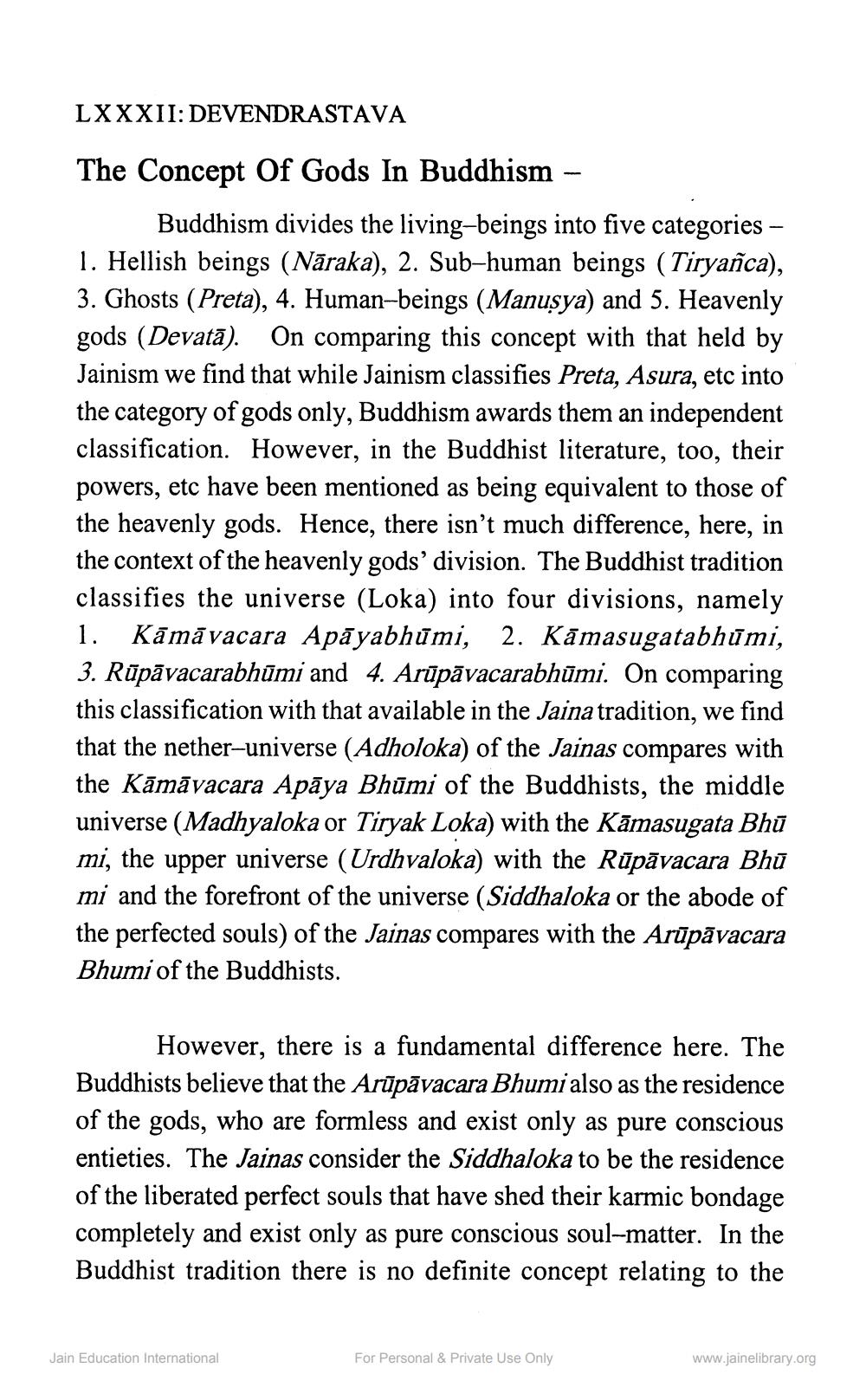________________
LXXXII: DEVENDRASTAVA
The Concept Of Gods In Buddhism -
Buddhism divides the living-beings into five categories – 1. Hellish beings (Nāraka), 2. Sub-human beings (Tiryañca), 3. Ghosts (Preta), 4. Human-beings (Manusya) and 5. Heavenly gods (Devatā). On comparing this concept with that held by Jainism we find that while Jainism classifies Preta, Asura, etc into the category of gods only, Buddhism awards them an independent classification. However, in the Buddhist literature, too, their powers, etc have been mentioned as being equivalent to those of the heavenly gods. Hence, there isn't much difference, here, in the context of the heavenly gods' division. The Buddhist tradition classifies the universe (Loka) into four divisions, namely 1. Kāmā vacara Apāyabhūmi, 2. Kāmasugatabhūmi, 3. Rūpāvacarabhūmi and 4. Arūpāvacarabhūmi. On comparing this classification with that available in the Jaina tradition, we find that the nether-universe (Adholoka) of the Jainas compares with the Kāmāvacara Apāya Bhūmi of the Buddhists, the middle universe (Madhyaloka or Tiryak Loka) with the Kāmasugata Bhū mi, the upper universe (Urdhvaloka) with the Rūpāvacara Bhū mi and the forefront of the universe (Siddhaloka or the abode of the perfected souls) of the Jainas compares with the Arūpāvacara Bhumi of the Buddhists.
However, there is a fundamental difference here. The Buddhists believe that the Arūpāvacara Bhumi also as the residence of the gods, who are formless and exist only as pure conscious entieties. The Jainas consider the Siddhaloka to be the residence of the liberated perfect souls that have shed their karmic bondage completely and exist only as pure conscious soul-matter. In the Buddhist tradition there is no definite concept relating to the
Jain Education International
For Personal & Private Use Only
www.jainelibrary.org




